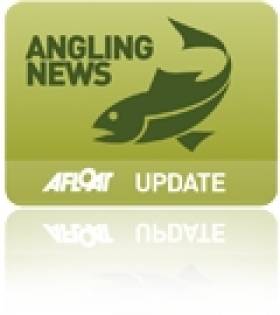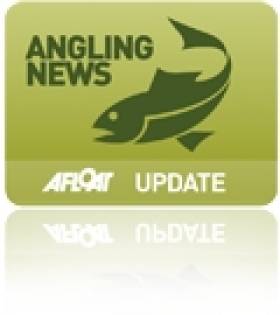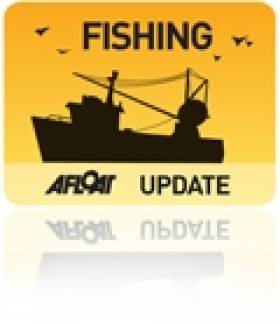Displaying items by tag: stakeholders
Donegal Marine Stakeholders Encouraged Over Integration Plan
#NEWS UPDATE - A Donegal TD is encouraging the county's marine stakeholders to submit suggestions for the Government's upcoming Integrated Marine Plan, as previously reported on Afloat.ie.
The plan, which will be published in the summer, "will be a national agenda for developing our country’s marine potential, across tourism, shipping, leisure, fisheries and other sectors," said Joe McHugh TD.
The Dáil deputy noted "it is significant" that Taoiseach Enda Kenny and Minister for the Marine Simon Coveney are "dealing with this personally" as "previous Governments did not give this type of prioritisation to the industry".
He added: “I encourage Donegal marine stakeholders who see potential for national development in the fisheries industry, sea tourism, marine leisure, oil production, renewable energy production, deep sea fisheries and in various other areas to make submissions to the Integrated Marine Plan."
More information on the Integrated Marine Plan can be found at www.oceanwealth.ie.
First Meeting of National Inland Fisheries Forum
Seasonality, climate change and the environment were the hot topics discussed at the inaugural meeting of the National Inland Fisheries Forum in Athlone last Thursday.
Inland Fisheries Ireland chief executive Dr Ciaran Byrne hosted the forum, whose 60 voluntary members - drawn from various stakeholder groups - are is set to meet twice annually.
The day saw TV personality and keen angler Derek Davis installed as chairman of the forum, following his appointment by the Minister for Natural Resources.
Davis noted that the forum "can influence policies for the protection, management, development and conservation of this valuable resource now and for the generations to come."
In his own address to the forum, Dr Ciaran Byrne highlighted the members' collective experience in fisheries management on Ireland's inland waterways.
“A number of you have served as members of the central and regional fisheries boards, some for over 20 years," he said. "As members of the forum you have the opportunity to discuss and advise on the future of inland fisheries in Ireland. IFI looks forward to receiving your considered views on the various issues.”
In a message to the meeting, Minister Pat Rabbitte stated his belief "that the forum will provide a meaningful channel of communication between the stakeholders and management of the inland fisheries resource".
New Fisheries Partnership for the River Shannon
The new group will comprise representatives from both bodies as well as Inland Fisheries Ireland, and will be independently chaired by former Shannon Fisheries Board CEO Eamon Cusack.
The plan is for anglers, fishery authorities and stakeholders to come together to assist in the management of the River Shannon.
At the group's launch in Athlone recently, Cusack said the partnership was working toward ensuring a sustainable yield of fish.
EU Fisheries Commissioner Visits Ireland to Discuss Policy
EU Commissioner for Maritime Affairs and Fisheries, Maria Damanaki will visit Ireland this week to discuss reform of the Common Fisheries Policy.
Commissioner Damanaki will speak tomorrow at the Institute of International and European Affairs where she will address Irish stakeholders on the new policy, which aims at preserving fish stocks at sustainable levels by managing fisheries in a responsible, science-based way.
She will also later meet with Minister for Agriculture, Fisheries and Food Simon Coveney.
On Friday she will travel to Galway with EU Commissioner for Research, Innovation and Science, Máire Geoghegan-Quinn, to visit the Marine Institute and participate in a roundtable on maritime policy with representatives of the Irish administration and the Irish maritime sector.
Commissioner Damanaki will also gauge the views of Irish stakeholders on the upcoming Atlantic Strategy under the Integrated Maritime Policy, which the European Commission is currently drawing up.
- EU Commissioner for Maritime Affairs and Fisheries
- Maria Damanaki
- Common Fisheries Policy
- Institute of International and European Affairs
- stakeholders
- sustainable fishing
- fishing
- fisheries
- Minister for Agriculture, Fisheries and Food
- Simon Coveney
- EU Commissioner for Research Innovation and Science
- Máire GeogheganQuinn
- Marine Insitute
- maritime policy
- Atlantic Strategy
- Integrated Maritime Policy
- European Commission
































































